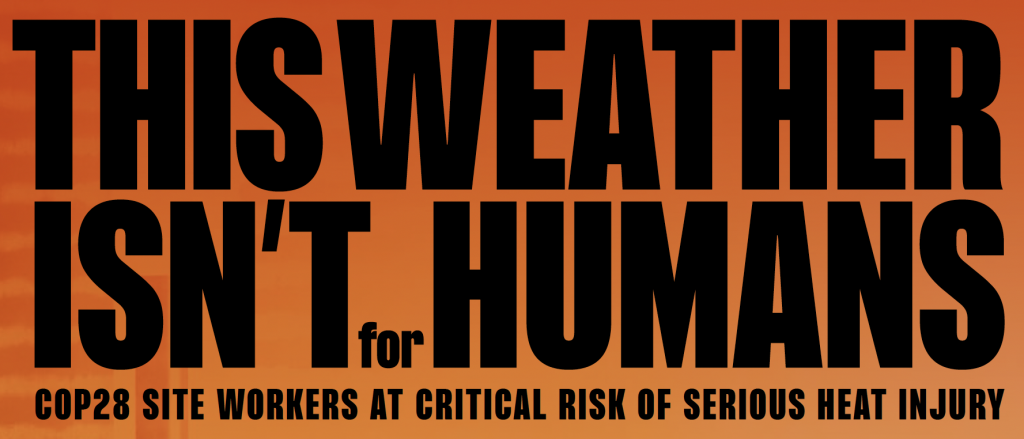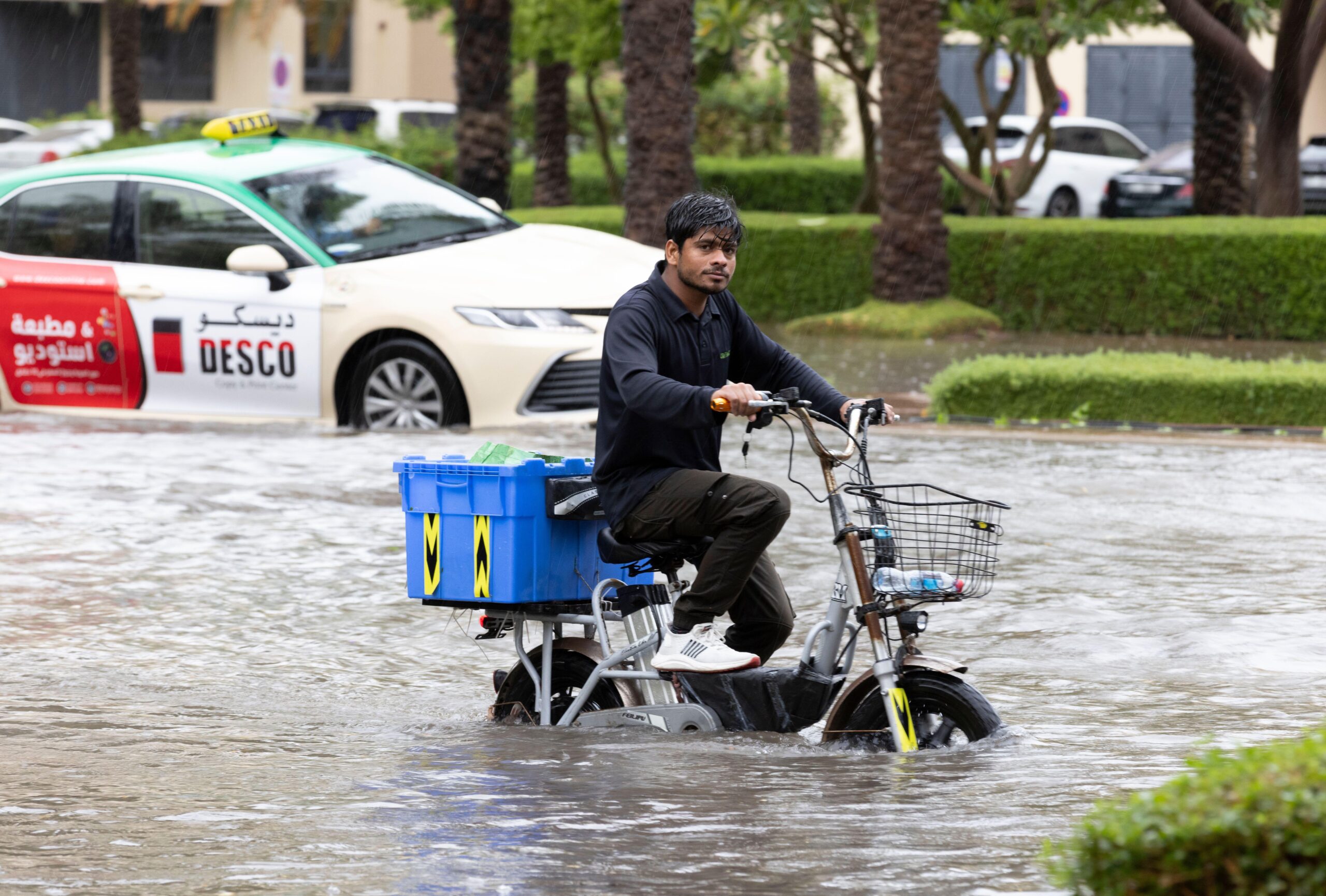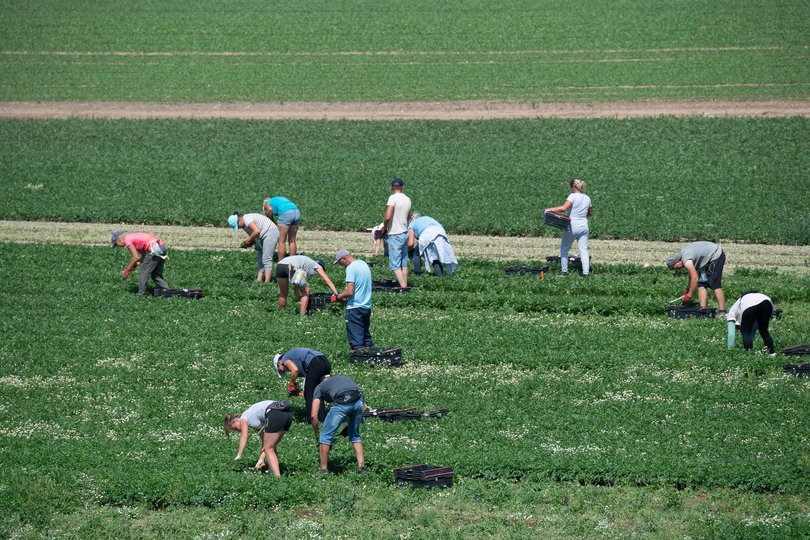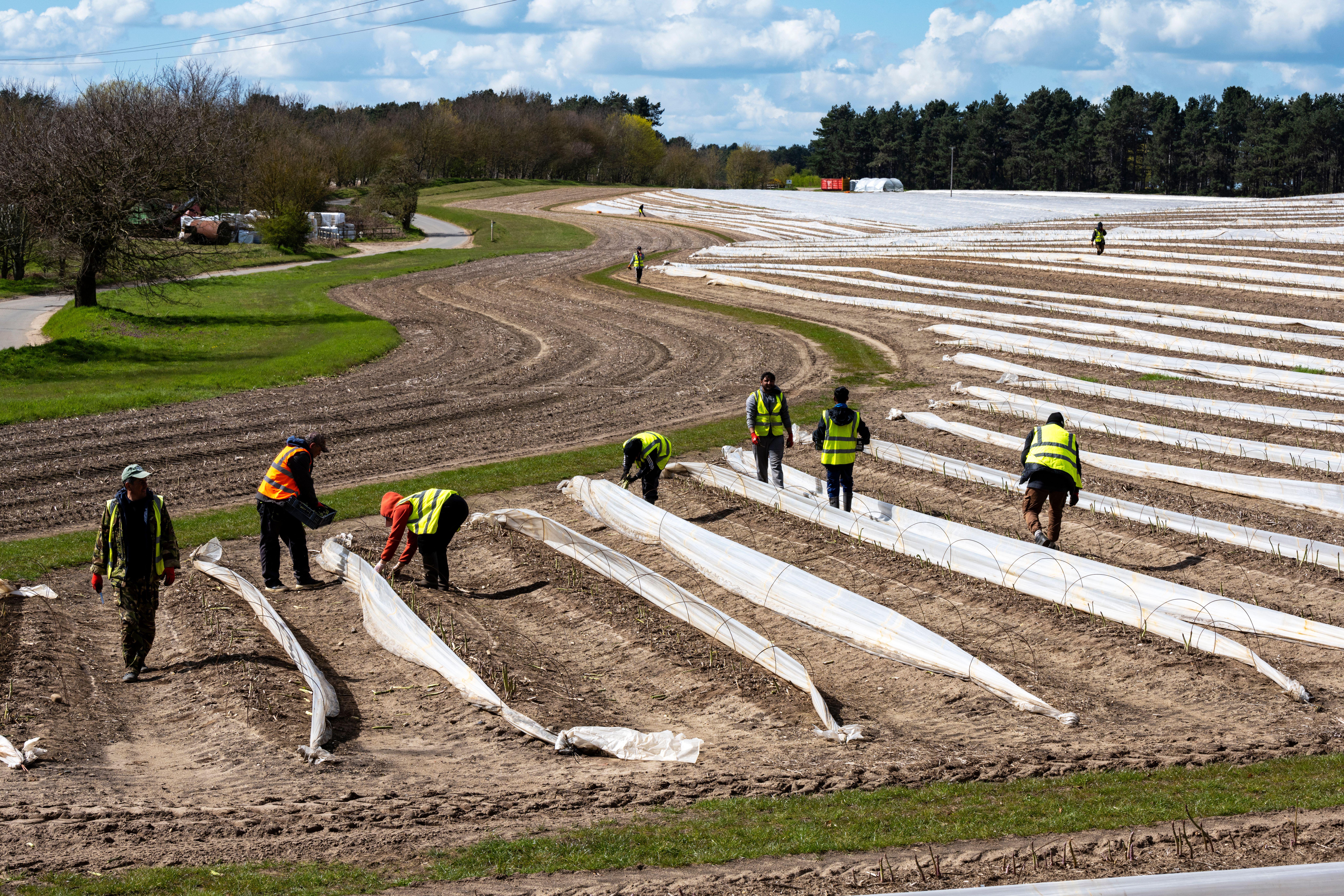
A new FairSquare investigation, This Weather isn’t for Humans has found that in September 2023, migrant construction workers on Dubai’s COP28 site were put to work outdoors in extreme heat that posed very serious threats to their health and could be fatal, and in clear violation of the United Arab Emirates’ laws designed to protect outdoor workers from its harsh climate.
With temperatures in Dubai as high as 42 degrees celsius at the time, the combination of heat and humidity workers were likely exposed to exceeds upper limits where construction work can safely be performed, according to internationally recognised standards.
FairSquare has obtained evidence that in early September over two separate days, work took place on at least three separate outdoor sites on Expo City between 12.30pm and 3pm, the hottest part of the day. The sites were located at the Dubai Exhibition and Convention Centre and the Opportunity site, both of which will be within or adjoining the “blue zone”, the UN managed zone where world leaders will rub shoulders during the COP28 climate conference in November this year. An Expo City representative told media last month that the site was undergoing “major, major preparations in many areas” to get ready for COP28.

Workers on the site told researchers that the heat was extreme and that they expected to have to work in such conditions. “Last week, I thought I would die every second we were outside… but we have to get paid,” one said. Another man said: “Of course, I get headaches and feel dizzy. Everyone in this heat does. This weather isn’t for humans, I think.“ A third migrant worker said he had previously collapsed on the site:
“I think I will one day collapse. I did once pass out while working on the site in 2021 – before Expo began – but just once. This time, so far I have not passed out and the weather is going to get better soon so hopefully it will be all good going forward. Otherwise, I just try to take quick water breaks when I can. There is also A/C [air conditioning] inside so I just go inside from time to time to feel better.”
Rapid rises in heat gain can cause what the World Health Organisation describes as “a cascade of illnesses”, including heat cramps, heat exhaustion, hyperthermia and heat stroke. And even if workers don’t immediately collapse, chronic exposure to this level of heat can create cumulative stress on the human body, and risks exacerbating the impact of respiratory and cardiovascular diseases, diabetes and kidney disease. Scientific researchers have linked high temperatures to a heightened risk of death for migrant workers in UAE’s neighbours Qatar and Kuwait.
The work, which involved small numbers of workers on each site – took place during the summer time “midday ban”, a 150 minute block each day when for three months of the year all outdoor work is banned by law across the UAE. The UAE government claims that this protects workers from sustaining injuries from the country’s extreme heat.
In September 2023, COP28 President Sultan Al Jaber said that under his presidency, COP28 would put health at the center of climate discussions, saying “the connection between health and climate change is evident, yet it has not been a specific focus of the COP process — until now. This must change.”
COP28 told FairSquare in a written statement that based on the information shared with it, it was “not aware of any breaches of Summer Working Hours on the site of this year’s Conference”. It said that Expo City and COP28 had “robust worker welfare policies and procedures”. FairSquare is calling on the COP28 organizers to ensure that an official investigation takes place into why migrant workers were working on their site in such extreme heat, during hours when national legislation prohibited outdoor work.
Meanwhile the UAE authorities should adopt a risk-based, rather than a calendar-based, approach to limit workers’ exposure to heat. Specifically, the UAE should pass legislation to ensure that employers are required to provide workers with breaks of an appropriate duration, in cooled, shaded areas, when there is an occupational risk of heat stress. Mandatory break times should take into account the environmental heat stress risks along with the exertional nature of the work being performed.
James Lynch of FairSquare said:
“If the UAE COP28 team claim they want to protect people’s health from climate change, they have to start close to home, where migrant workers have been preparing the Expo City site in temperatures that tourists faint in. This poses a severe risk to these workers’ health and even their lives.”
Background
In June this year, the Vital Signs Partnership, of which FairSquare is a member, published Killer Heat, a report examining the impact of extreme heat in the Gulf states on migrant workers. The report finds that extreme and rising temperatures in the Gulf states, combined with inadequate protective measures, are placing migrant workers across the region at acute risk of potentially fatal heat-related illnesses and injuries.


